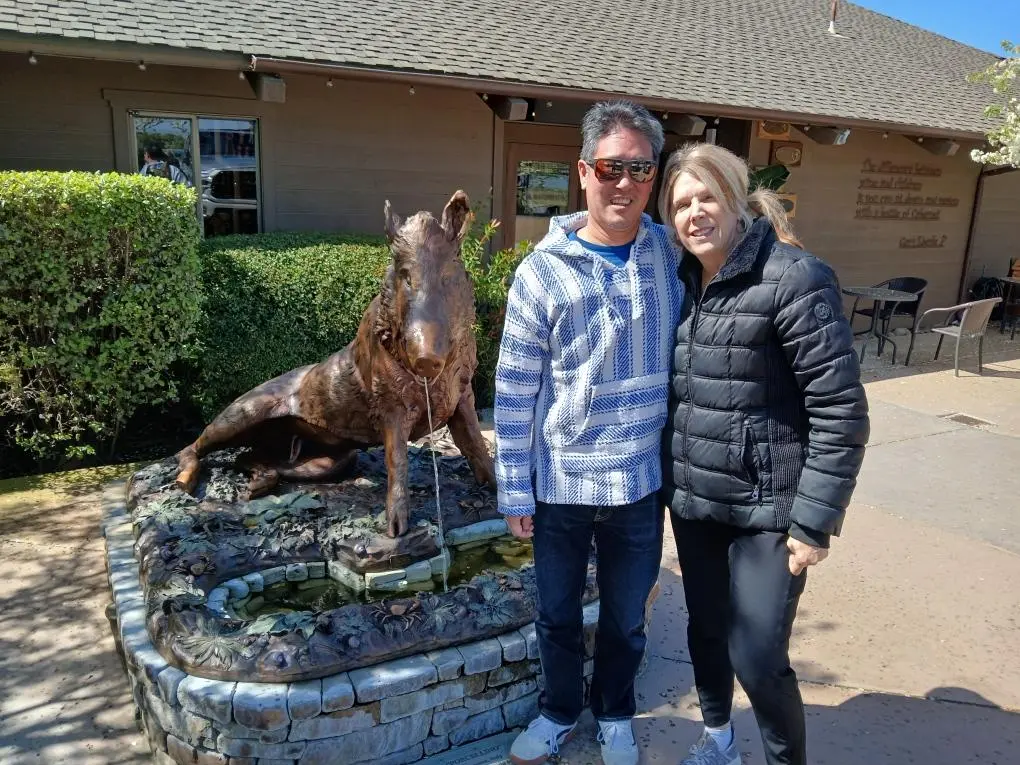Introduction to wine making
Making wine is a fascinating process that involves various steps from harvesting grapes to fermenting the juice. Vineyards carefully select the best grapes for the wine. The grapes are then crushed to release their juice, which is fermented with yeast to turn the sugars into alcohol. After fermentation, the wine is aged in barrels to develop its flavors. Finally, the wine is bottled and ready for enjoyment.

Importance of private tours in wine making
Private tours in winemaking are crucial for gaining exclusive insights into the wine production process. These tours offer a behind-the-scenes look at the craftsmanship and dedication that go into creating each bottle of wine. You get a firsthand experience of the vineyards, the fermentation process, and the aging barrels, which deepens your appreciation for the art of winemaking. Additionally, private tours often include tastings of limited-edition wines, allowing you to savor unique flavors that are not easily accessible to the general public. Whether you are a wine enthusiast or simply curious about the intricacies of winemaking, private tours offer a memorable and educational experience that brings you closer to the magic of the vineyard.
Details of exclusive wine discoveries
You'll uncover hidden gems during private wine tours, such as rare vintages, limited editions, and unique winemaking techniques. These exclusive discoveries are often not available to the general public and can add a special touch to your wine tasting experience. By participating in private tours, you have the opportunity to learn directly from winemakers, explore vineyards off the beaten path, and taste wines that are not sold in stores.
Behind the scenes of wine production
Winemaking involves several steps, starting from grape harvesting to the bottling process.
- Grape Harvesting: Grapes are carefully picked by hand or machine, depending on the vineyard's practices.
- Crushing and Pressing: Grapes are crushed to extract their juice, which is then fermented to make wine.
- Fermentation: Yeast is added to the juice, converting sugars into alcohol.
- Aging: The wine is stored in barrels or tanks to develop its flavors.
- Bottling: Once the aging process is complete, the wine is bottled and labeled for distribution.
Each step is crucial in creating a unique wine, and visiting wineries can provide an insider's look into this fascinating process.
Exploring the fermentation process
Winemaking involves a fermentation process where yeast consumes the sugars in grapes, turning them into alcohol. This process takes place in stainless steel tanks or wooden barrels, depending on the winemaker's preference. Key points in exploring the fermentation process include:
- Yeast plays a crucial role in converting sugars to alcohol.
- Stainless steel tanks and wooden barrels are common vessels for fermentation.
- Understanding this process provides insight into how wine develops its flavors.
Uncovering the secrets of barrel aging
Barrel aging plays a crucial role in the flavor development of wines. Wooden barrels, usually made of oak, impart unique flavors to the wine, such as vanilla, spices, or even a hint of caramel. This process allows the wine to breathe and interact with the wood, enhancing its complexity and character. The length of time the wine spends in barrels can vary, from a few months to several years, depending on the winemaker's desired style. During this period, the wine undergoes subtle transformations, gaining richness and depth. Wineries often offer private tours that reveal the secrets of barrel aging, giving enthusiasts a chance to witness this fascinating process firsthand.
Tasting sessions and sensory experiences
During tasting sessions, you get to sample different wines to explore their flavors and aromas. Enhance your sensory experiences by learning to identify various wine characteristics, such as acidity, sweetness, and tannins. Dive into the world of wine through guided tastings that help you discover new favorites and refine your palate.
Impact of location on wine quality
The location where grapes are grown influences the taste and quality of wine. Factors like climate, soil, and terrain can affect the flavors and characteristics of the wine produced in that region. Vineyards situated in cooler climates may produce wines with higher acidity, while those in warmer climates may result in fuller-bodied wines. Soil composition also plays a vital role, with certain types of soil contributing unique flavors to the grapes. Winemakers carefully select locations to cultivate their vineyards based on these critical factors to produce distinctive and high-quality wines.
Meet the experts behind the wine
During private wine tours, you get to meet the experts who make the wine. These experts are often winemakers or sommeliers who have a deep understanding of the winemaking process. They can share insights on how the wine is made, the different grape varieties used, and the unique techniques that make each wine special. Engaging with these experts can enhance your wine tasting experience and provide you with a deeper appreciation for the art of winemaking.
Conclusion: A toast to exclusive wine discoveries
Let's raise a glass to the unforgettable moments of discovering exclusive wines on private tours. Whether you prefer bold reds or crisp whites, these hidden gems offer a unique taste of the craft and dedication behind each bottle. Your journey through vineyards and cellars unveils the artistry and passion of winemakers, leaving you with a deeper appreciation for the intricate process of winemaking. Cheers to the memories made and the secrets unlocked during these exclusive wine adventures!
Comments
Post a Comment